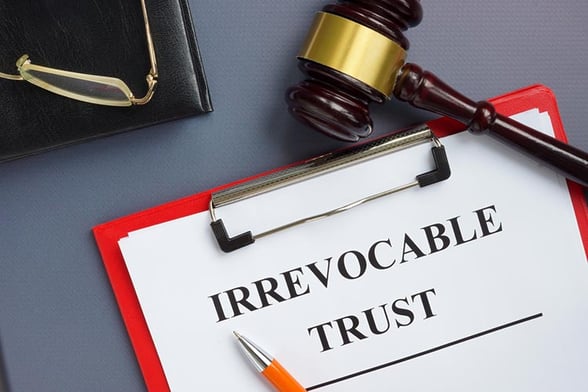
Oliver Wendell Holmes, legal scholar and Associate Justice of the United States Supreme Court, advised that men should “Put not your trust in money, but put your money in trust.”1 That may still be good advice for individuals seeking effective management of funds both presently and in the future.
Trusts can be a crucial element of estate planning, helping you manage your assets and tax obligations while you are alive and after you die. Since there is more than one type of trust, it’s helpful to discuss the varieties and how they differ. In general, a trust is a fiduciary structure that allows a trustee to hold assets on behalf of one or more beneficiaries. Trusts may allow assets to pass to heirs outside of probate, reducing the time needed for the transfer and potentially the distribution cost and the taxes owed.
Living Versus Testamentary Trusts
A living trust goes into effect while the grantor (the person who establishes the trust) is still living, while the grantor's death triggers a testamentary trust. With a living trust, the grantor remains the owner of the assets in the trust until they die. That person can still use, spend, sell, or otherwise dispose of the assets, which become the property of the beneficiaries when the grantor dies. If the trust is testamentary, it is created following instructions detailed in the grantor’s last will and testament.
Revocable Versus Irrevocable Trusts
If a trust is irrevocable, the grantor relinquishes control and ownership of the assets placed in the trust. The grantor cannot change the trust’s terms. The trustee manages the assets in the trust, pays the taxes due, and distributes bequests as appropriate. If a trust is revocable, the grantor can terminate it or modify it at will. The grantor still owns the money and property in the trust and remains responsible for any taxes.
What Is the Advantage of an Irrevocable Living Trust?
The grantor of an irrevocable living trust may have several objectives in choosing that structure. The grantor does not want to transfer assets outright to the eventual beneficiaries but also seeks to divest him or herself of ownership. The motivation could be to provide income to the heirs continually and manage tax liabilities later. While the named beneficiary holds equitable title to the assets in an irrevocable living trust, the trustee is the legal owner.
Transferring the assets from the grantor to the trust might be desirable from a tax perspective if the grantor occupies a higher tax bracket than the eventual beneficiaries. Since the trust is irrevocable, the grantor is no longer an owner and is not liable for taxes on assets or earnings. The trust may be distributing income to the beneficiaries, who would owe any taxes based on their income.
Since the trust is a living trust, the provisions activate when it is set up, not when the grantor passes away. This element can be important for managing the trust and its assets. If the grantor becomes incapacitated, their property has already been safely allocated. The trustee can continue administering the trust according to its terms while the grantor lives and following their death.
This material is for general information and educational purposes only. Information is based on data gathered from what we believe are reliable sources. It is not guaranteed as to accuracy, does not purport to be complete and is not intended to be used as a primary basis for investment decisions.
Realized does not provide tax or legal advice. This material is not a substitute for seeking the advice of a qualified professional for your individual situation.



